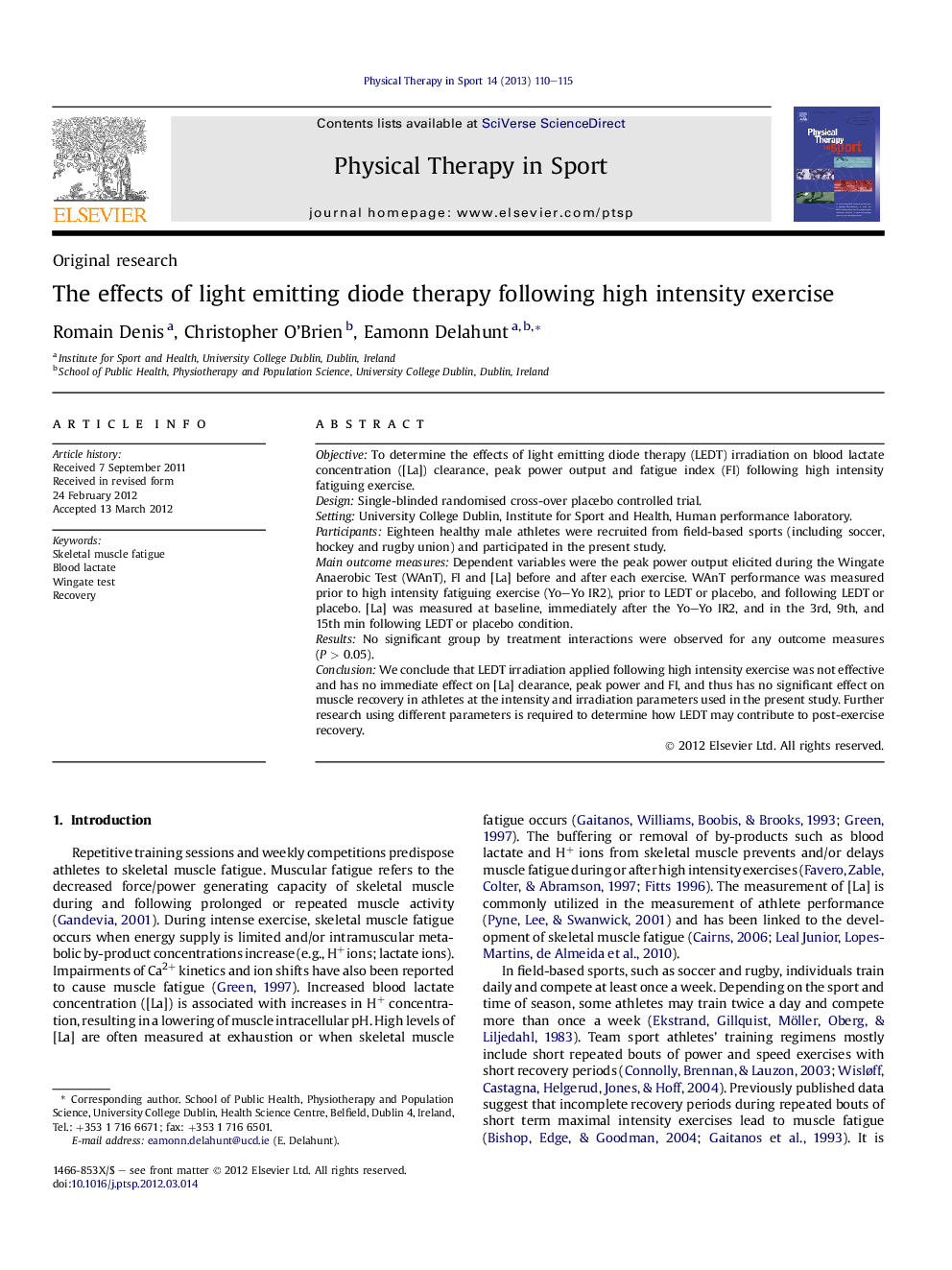| Article ID | Journal | Published Year | Pages | File Type |
|---|---|---|---|---|
| 2705860 | Physical Therapy in Sport | 2013 | 6 Pages |
ObjectiveTo determine the effects of light emitting diode therapy (LEDT) irradiation on blood lactate concentration ([La]) clearance, peak power output and fatigue index (FI) following high intensity fatiguing exercise.DesignSingle-blinded randomised cross-over placebo controlled trial.SettingUniversity College Dublin, Institute for Sport and Health, Human performance laboratory.ParticipantsEighteen healthy male athletes were recruited from field-based sports (including soccer, hockey and rugby union) and participated in the present study.Main outcome measuresDependent variables were the peak power output elicited during the Wingate Anaerobic Test (WAnT), FI and [La] before and after each exercise. WAnT performance was measured prior to high intensity fatiguing exercise (Yo–Yo IR2), prior to LEDT or placebo, and following LEDT or placebo. [La] was measured at baseline, immediately after the Yo–Yo IR2, and in the 3rd, 9th, and 15th min following LEDT or placebo condition.ResultsNo significant group by treatment interactions were observed for any outcome measures (P > 0.05).ConclusionWe conclude that LEDT irradiation applied following high intensity exercise was not effective and has no immediate effect on [La] clearance, peak power and FI, and thus has no significant effect on muscle recovery in athletes at the intensity and irradiation parameters used in the present study. Further research using different parameters is required to determine how LEDT may contribute to post-exercise recovery.
